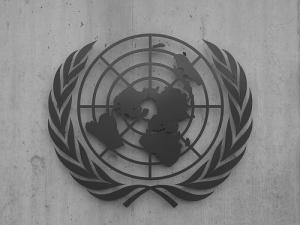
 The human rights records of forty-eight countries are under review this year as part of the Universal Periodic Review process. APC’s Joy Liddicoat and Henrik Almstrom explain the significance of the UPR and how APC is working for it to protect rights online.
The human rights records of forty-eight countries are under review this year as part of the Universal Periodic Review process. APC’s Joy Liddicoat and Henrik Almstrom explain the significance of the UPR and how APC is working for it to protect rights online.
What is the UPR?
The UPR is a process where members of the Human Rights Council take a look at the human rights record of each UN member state. The review process runs through a cycle which includes monitoring and assessment, recommendations for improvement and specific action, implementation in-country, and then a review of progress.
Why have a UPR?
The purpose is to gradually improve human rights by creating a constructive process in which governments are held accountable for their human rights performance. The review provides an opportunity for governments to present their point of view, explain steps they have taken (or why they have not), outline planned improvements and agree on what they will do to fulfill their international human rights obligations.
How does it work?
States are reviewed on a 4-year cycle, with 48 states in each cycle. Click here for the schedule for the 2012-2016 UPR. The review is based on three reports:
- State report — submitted by the State itself
- UN summary report — prepared by the UN. Includes a summary of all UN bodies’ reports
- Stakeholder report — includes input from all relevant stakeholders, such as civil society groups and national human rights organisations
The review is conducted by members of the Human Rights Council, known as the UPR Working Group, assisted by three experts called the Troika. The three Troika members are representatives of the member states of the HRC. In this way the review is a “peer review” of governments by governments.
How is it different from other UN human rights processes?
The UPR doesn’t focus on just one area of rights, like women’s rights, or civil and political rights. The UPR looks at all the human rights issues in a given country, although generally the focus will be on the issues of most concern.
What obligations are reviewed?
States are reviewed on all their UN human rights obligations:
- The Charter of the United Nations
- The Universal Declaration of Human Rights
- Human rights treaties that have been ratified by the country
- Voluntary pledges and commitments made by countries (which could include national human rights policies and programmes)
- International humanitarian laws that apply to the country.
Do governments care about the UPR?
So far, all governments have participated in the UPR. That makes it unique compared to other human rights processes in the UN.
Why should NGOs participate in the UPR process?
The UPR offers a unique opportunity to bring international attention to domestic human rights issues. It also affords the chance to make recommendations in an international forum and pressure states to abide by their treaty obligations.
What has APC been doing at the United Nations Human Rights Council?
APC has been building support in the Human Rights Council. As the HRC is the primary body in the United Nations dealing with human rights issues, APC’s strategy is to get internet rights recognised in the council’s mandate.
What does this mean for the UPR?
APC is lobbying to have human rights standards, as recognised under existing treaties, applied to the internet. As an example, the UN Special Rapporteur on Freedom of Expression has stated that internet issues are of critical importance in fulfilling the right to freedom of expression.
APC will be working with members and networks to take action through the UPR process on internet rights issues in several countries. In 2012, we will focus on Ecuador, India, Brazil, South Africa and the Philippines. Activities will include submissions to the stakeholder report, participation in national consultations, engagement with national human rights institutions, national awareness raising and activities related to the Connect Your Rights! campaign. APC will also be working with members and partners to put forward concrete practical recommendations on the issues of greatest concern, so that action on these can be monitored in the UPR process.